3 BODY PROBLEM – Season One
A fateful decision made in 1960s China reverberates in the present, where a group of scientists partner with a detective to confront an existential planetary threat.
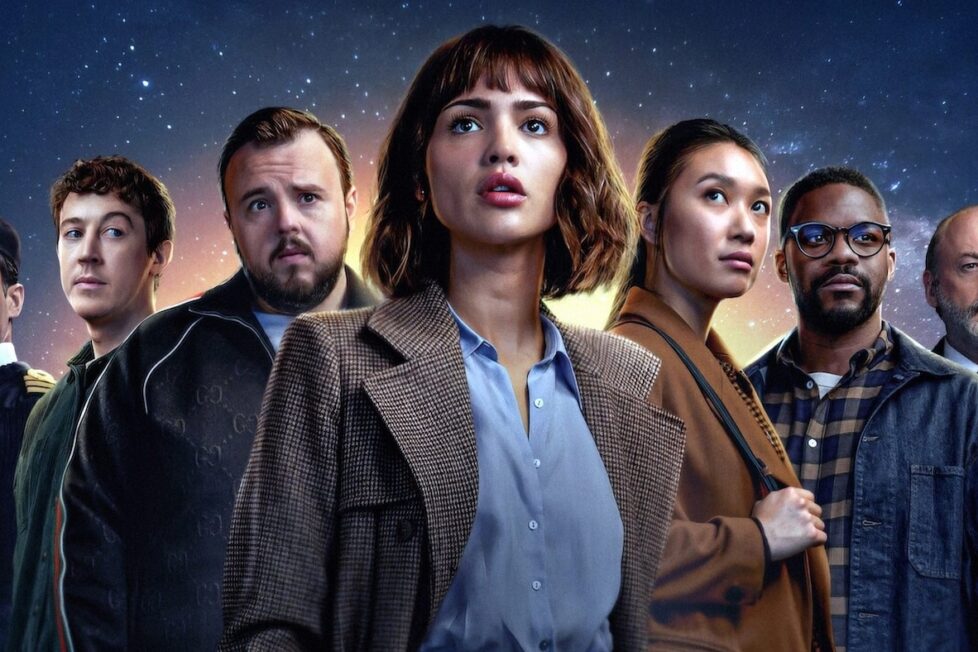
A fateful decision made in 1960s China reverberates in the present, where a group of scientists partner with a detective to confront an existential planetary threat.


3 Body Problem is an adaptation of Chinese author Liu Cixin’s 2008 novel of the same name, part of his Remembrance of Earth’s Past trilogy, and offers a promising start to what could be an exceptional alien invasion saga. The series opens with a violent scene. In 1960s China, a young Ye Wenjie (Zhang Ziyi) watches helplessly as her father is beaten to death during a Cultural Revolution struggle session. As graphic and affecting as this scene is, it forms the basis for the series’ interconnected themes, all rooted in survival.
The story alternates between two time periods, as we follow Ye Wenjie’s harrowing coming-of-age story in 1960s China and a group of 21st-century Oxford astrophysicists who all experience mysterious phenomena. This sets the stage for a thrilling saga that spans literal Time and Space.
In the present day, Auggie Salazar (Eiza González) is on the cusp of creating an innovative microfibre wire, which could have extremely positive or negative repercussions for mankind depending on how it’s used. But just as she’s about to present her invention to the world, she’s tormented by a strange illness: a digital clock counting down on her retinas, obscuring her view like an eerie augmented simulation, or the implication that she’s somehow been hacked like a computer.
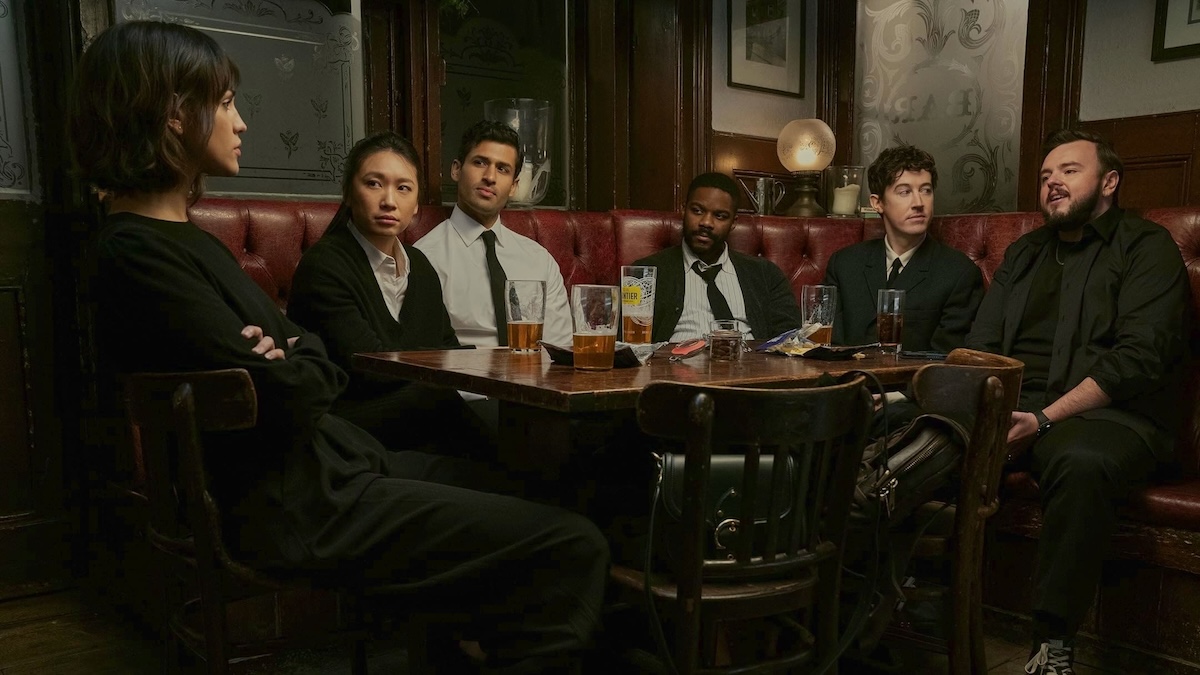
During the series, we also follow her friends she met at Oxford, each encountering other mysterious phenomena, raising further questions about the unusual events. While trying to uncover her mystery, Auggie and her friend Saul Durand (Jovan Adepo) see the stars flickering in the night sky like faulty lights, confirming it’s not just in her mind. Simultaneously, their friend and fellow physicist Vera Ye (Vedette Lim) dies by an apparent suicide, and two other friends Jack Rooney (John Bradley) and Jin Cheng (Jess Hong) receive anonymous gifts: a silver virtual reality headset that makes augmented reality look about as dated as a flashlight.
As Jin and Jack don their headsets, they’re transported to a virtual world designed to mimic historical eras. Here, they must solve riddles and thought experiments that could hypothetically save a planet from annihilation. Meanwhile, mysterious investigators Thomas Wade (Liam Cunningham) and Clarence Shi (Benedict Wong) hunt for a woman named Tatiana (Marlo Kelly) who vanishes mysteriously from security footage—or was ‘erased’ as Clarence alleges. With strong evidence of an alien invasion looming and a cult that wishes to welcome the alien overlords, viewers will be sent down a rabbit hole of conspiracy.
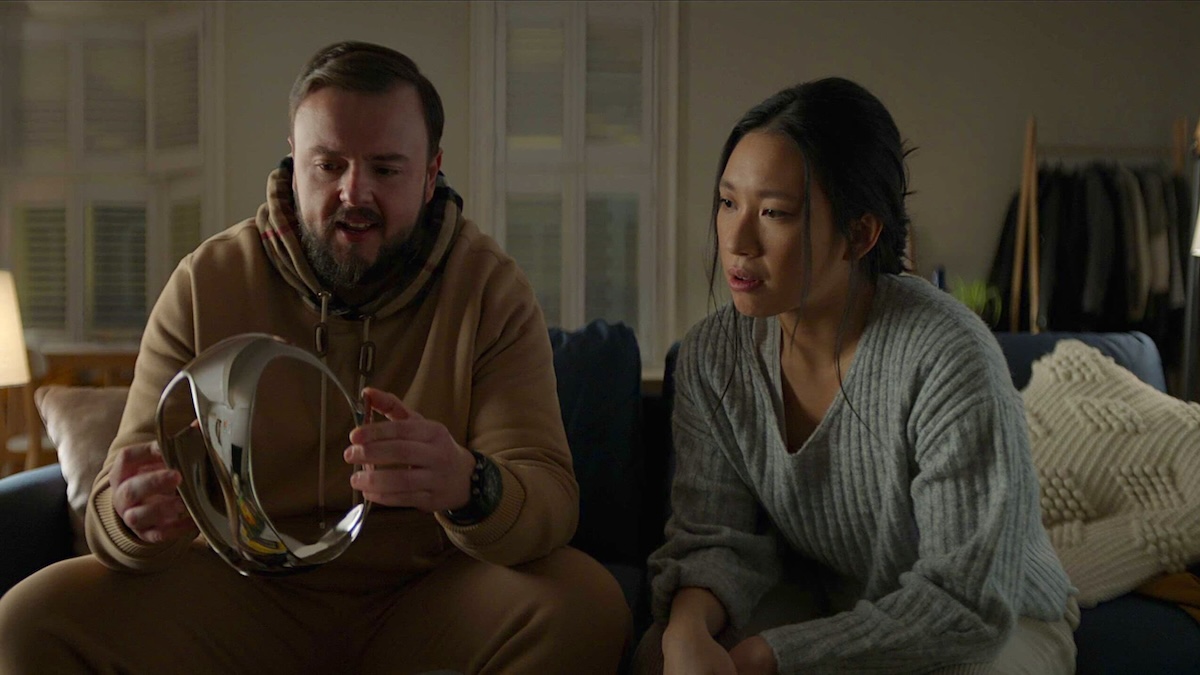
This might be the perfect recipe for hooking audiences by their lapels. For the most part, 3 Body Problem manages to keep things engaging, offering many twists and turns along the way with implications about Earth’s future being in the wrong hands. However, some viewers may find that the series struggles with narrative focus, unsure of which character’s perspective to follow. While Auggie’s storyline loses momentum early on, the narrative’s true driving force unfolds with Jin Cheng. Unlike the others, her story stands out as the most engaging and informative, serving to unravel the plot. When gifted the headset, she becomes obsessed with solving the riddles of the virtual world she’s entered, uncovering a larger conspiracy that poses a greater threat to the rest of the world.
Jess Hong’s performance adds a sense of urgency to Jin Cheng’s vital role, particularly when she plays off the other actors so well. Her interactions with Bradley and Sharp are entertaining and emotionally affecting. However, it’s the scenes with her and Chao, who plays the present-day Ye Wenjie, that demonstrably showcase a clash between contrasting attitudes towards humanity’s future. This is a classic optimism versus pessimism battle that helps to bring out the series’ core messages. The role of Mike Evans (Jonathan Pryce), a wealthy man with ties to Ye Wenjie who forms a kind of seafaring cult, connects the dots between the two timelines quite well. Even within a relatively short time on screen, Pryce skilfully captures the essence of humanity’s deep-seated yearning for a higher existence, highlighting the dichotomy between science and faith.
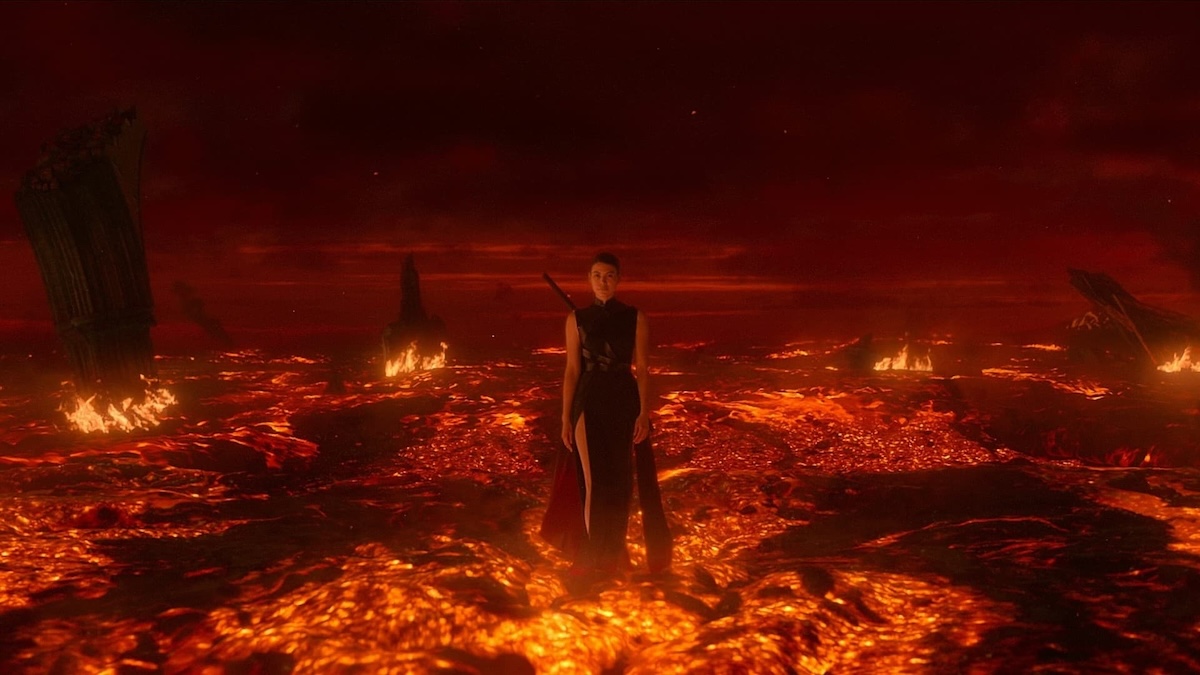
As Jin naturally connects with the invasion arc, we might wonder why the series didn’t simply begin with her instead of Auggie in the present timeline. Perhaps it favours plot over character development, although it still delivers emotional journeys as well, such as with Will Downing’s (Alex Sharp) poignant terminal illness, which aims to contribute to the theme of humanity’s survival in the face of annihilation and uncertainty. Some viewers may appreciate the shift in focus, as multiple character arcs can reflect the need for collaboration in the face of adversity rather than facing it alone. Additionally, a non-linear structure supports the philosophical and scientific theories underpinning the series.
Despite this, series creators D.B Weiss and David Benioff handle the production well, assembling a talented cast and crew to deliver an engrossing science fiction thriller with significant untapped potential. Given their previous projects—Troy (2004), Stay (2005), Brothers (2009), and most famously Game of Thrones (2011-19)—we shouldn’t expect anything less.
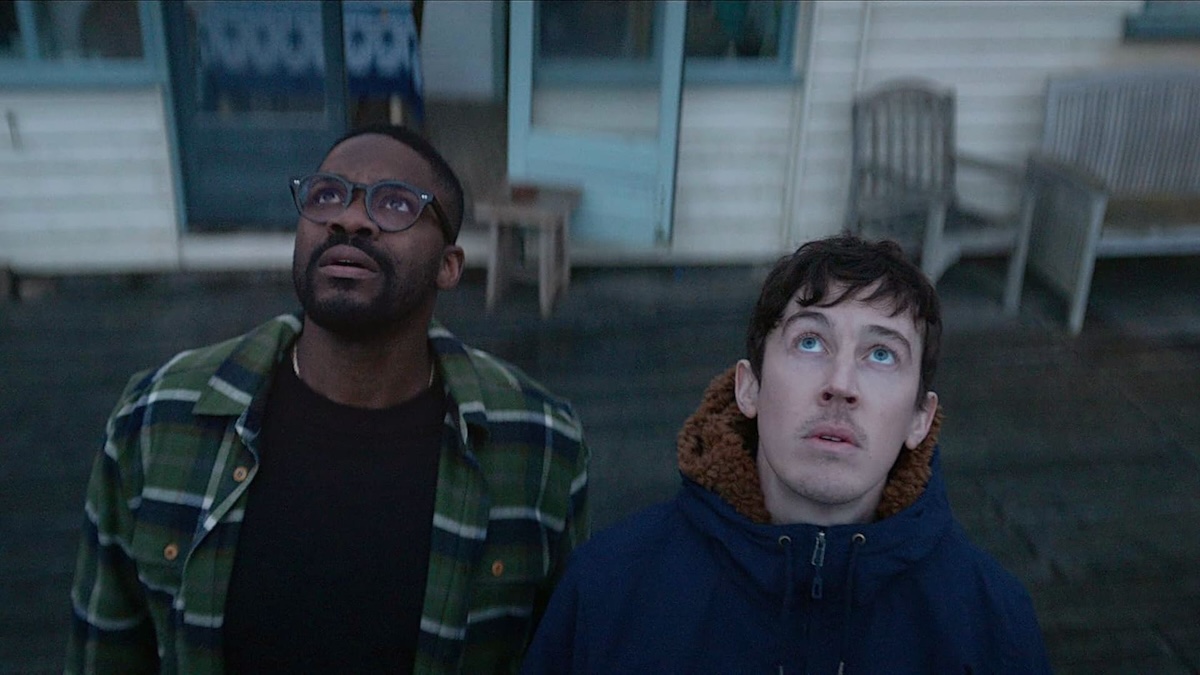
The cinematography is particularly striking, capturing historical periods with immersive detail, reminiscent of Jin’s VR game experience. The cast delivers strong performances across the board, with very few actors appearing unenthused or uncertain about their characters. However, the key portrayals by Hong, Cunningham, Chao, Pryce and Adepo truly shine here, anchoring the series and elevating it beyond being just another sci-fi adaptation with implausible elements and cool theories. The screenplay strives to make every character, in their small way, necessary to the unfolding plot, keeping us focused on the larger invasion story at play and its implications about humanity’s dual propensity towards violence and salvation. Some answers are provided by the end, but there’s still room to explore the more complex ramifications of survival should the series be granted another season.
The series should join others like fellow Netflix production Another Life (2019), Stephen King’s Under the Dome (2013-15), and the Halle Berry-led Extant (2014-15) with its potential to keep us entertained over multiple seasons. Even if some answers proved to be convoluted or implausible in the above-mentioned series, they at least offered promise instead of dangling half-solutions in front of us like others, such as From (2022) and Outer Reach (2022). Though, those are certainly entertaining pulp that we want to see more of.
Overall, 3 Body Problem delivers on most of its promises, despite not providing all the answers just yet. While some may find faults in its treatment of complex astrophysical theories and plausibility, fans of the genre will find something to appreciate here. For those who crave quality science fiction thrillers and long for the days when such works received extended runs, the series merits at least another season or perhaps more. Hopefully, we haven’t seen the end of this story.
UK • USA • CHINA | 2024 | 8 EPISODES | 2.35:1 | COLOUR | ENGLISH

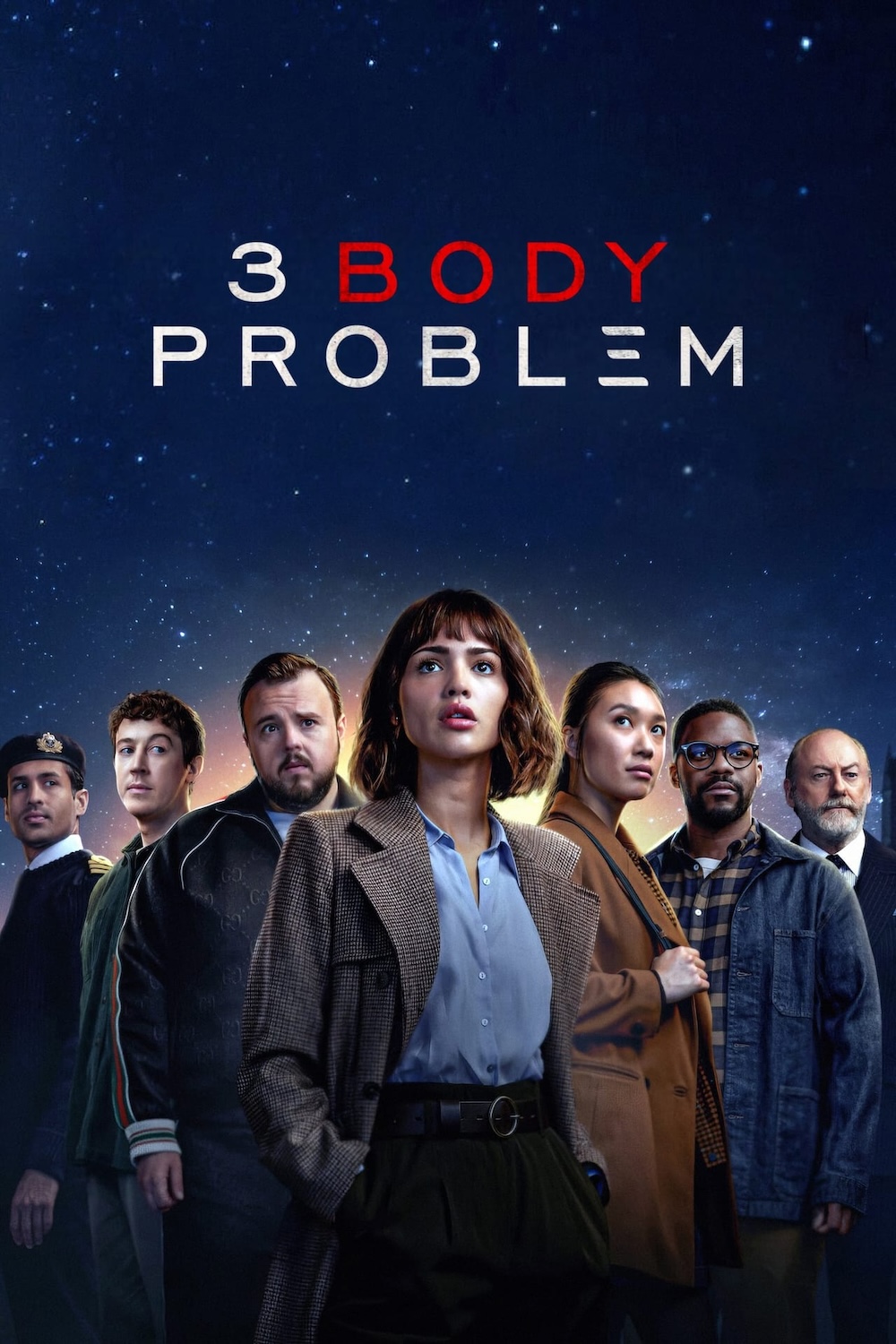
writers: David Benioff, D.B Weiss, Alexander Woo, Rose Cartwright & Madhuri Shekar (based on the novel ‘The Three-Body Problem’ by Cixin Liu).
directors: Derek Tsang, Andrew Stanton, Minkie Spiro & Jeremy Podeswa.
starring: Jovan Adepo, John Bradley, Rosalind Chao, Liam Cunningham, Eiza González, Jess Hong, Alex Sharp, Sea Shimooka, Zine Tseng, Benedict Wong & Jonathan Pryce.
